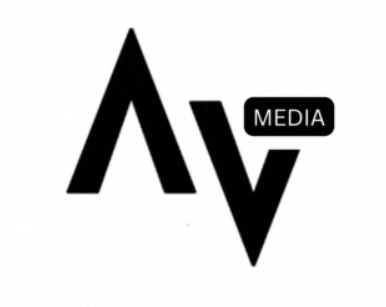Delves into everything you need to know about keyword optimization, from in-depth research to strategic implementation. By following these steps and best practices, you’ll be well on your way to achieving top rankings and attracting targeted organic traffic to your website.
Understanding the Power of Keywords
Keywords are the search terms people use on search engines like Google to find information. They represent the bridge between your website and your target audience. By strategically optimizing your website for relevant keywords, you increase the chances of your content appearing in search results when users enter those specific terms.
Keyword Research: The Foundation of Success
Before diving into optimization, thorough keyword research is essential. This initial phase helps you identify the most valuable keywords for your niche and content strategy. Here’s a breakdown of the key steps:
- Identify Your Niche: Define your website’s core area of focus. What topics or products do you specialize in?
- Brainstorm Seed Keywords: Jot down a list of broad keywords relevant to your niche.
- Utilize Keyword Research Tools: Leverage free and paid tools like Google Keyword Planner, SEMrush, or Ahrefs to discover related keywords, search volume, and competition level.
- Analyze Search Intent: Go beyond just keywords and understand the user’s intent behind their search queries. Are they looking for information, a product, or something else?
- Prioritize Keywords: Based on search volume, competition, and relevance to your content, categorize your keywords into primary, secondary, and long-tail keywords.
Mastering On-Page Optimization for Targeted Keywords
Once you have a robust keyword list, it’s time to optimize your website’s on-page elements to signal their relevance to search engines.
- Craft Compelling Title Tags and Meta Descriptions: Title tags are the headlines displayed in search results, while meta descriptions provide a brief explanation of your content. Include your primary keyword naturally in both, while keeping them concise and user-friendly.
- Optimize Headings (H1, H2, H3): Structure your content using clear headings. Include your primary and secondary keywords strategically within these headings to improve readability and relevance.
- Keyword Integration Throughout Content: Naturally weave your target keywords throughout your content, but prioritize user experience over keyword stuffing. Focus on creating informative and engaging content that addresses the user’s search intent.
- Image Optimization with Alt Text: Don’t neglect image optimization! Include relevant keywords in the alt text descriptions of your images to improve accessibility and search engine understanding.
- URL Structure with Keywords: Craft user-friendly URLs that incorporate your target keywords whenever possible. This enhances both SEO and user experience.
Internal Linking: Building a Strong Website Architecture
Internal linking plays a crucial role in SEO by establishing a clear hierarchy and thematic flow within your website. By linking relevant content pages together using targeted anchor text (the clickable text), you distribute link juice (SEO value) and improve website navigation for both users and search engines.
The Power of Off-Page Optimization: Building Authority
While on-page optimization sets the stage, off-page optimization strengthens your website’s authority and credibility in the eyes of search engines. Here are some key strategies to build a robust off-page presence:
- Backlink Acquisition: Secure high-quality backlinks from reputable websites in your niche. Backlinks act as votes of confidence, signaling to search engines that your content is valuable and trustworthy.
- Guest Blogging: Contribute guest articles to relevant websites within your niche. This allows you to showcase your expertise, reach a wider audience, and potentially earn valuable backlinks.
- Social Media Engagement: Actively promote your content on social media platforms. Increased social shares and engagement can indirectly influence search engine rankings.
Content Freshness: Keeping Your Website Relevant
Search engines favor websites that consistently deliver fresh and valuable content. Here’s how to maintain content freshness:
- Regular Content Updates: Regularly update existing content with new information, statistics, and trends.
- Publish New Content Consistently: Maintain a consistent content publishing schedule to keep your website active and engaging.
- Content Audits and Revamps: Conduct periodic content audits to identify outdated information and opportunities for improvement.
Technical SEO: The Foundation of a Healthy Website
While keyword optimization is essential, don’t neglect technical SEO. Technical SEO ensures your website is crawlable, indexable, and user-friendly for both search engines and visitors. Here are some key aspects:
- Mobile-Responsiveness: In today’s mobile-first world, ensure your website is optimized for all devices.
- Website Speed Optimization: A fast-loading website provides a positive user experience and can indirectly influence search rankings.
- Structured Data Implementation: Utilize structured data markup to provide search engines with richer information about your content, potentially leading to richer search results.
Measuring Success: Tracking Your SEO Efforts
SEO is an ongoing process, and tracking your progress is crucial. Utilize SEO analytics tools like Google Search Console to monitor your website’s organic traffic, keyword rankings, and backlinks. This data allows you to identify areas for improvement and refine your SEO strategy.
Advanced Techniques for Power Users
Once you’ve mastered the fundamentals, explore advanced techniques to further refine your SEO strategy:
- Topic Clusters and Content Silos: Organize your content around thematic clusters to establish topical authority and improve website navigation.
- Entity Building: Help search engines understand your brand and content by building a strong entity through consistent use of relevant keywords and schema markup.
- International SEO: If you target a global audience, consider implementing international SEO strategies for specific regions and languages.
The Ethical Way to SEO Success
Remember, SEO is a long-term game focused on providing value to your target audience and building a sustainable online presence. Avoid black-hat SEO tactics like keyword stuffing or buying backlinks, as these can harm your website’s reputation and potentially lead to penalties from search engines.
FAQs
- How often should I update my keywords?
There’s no one-size-fits-all answer. Regularly monitor your keyword performance using SEO tools. Update your keyword strategy if you see significant changes in search volume, competition, or user intent. Aim to re-evaluate your keywords at least quarterly.
- Is keyword density still important?
Keyword density (percentage of keywords in your content) is no longer a primary ranking factor. Focus on creating informative and engaging content that naturally incorporates your target keywords.
- I have a small website. Can I still compete for high-volume keywords?
While it can be challenging, targeting long-tail keywords (more specific keyword phrases) can be a great strategy for smaller websites. These keywords often have lower competition and can still attract targeted traffic.
- How long does it take to see results from SEO?
SEO is a marathon, not a sprint. Seeing significant results can take several months, depending on your competition and niche. However, with consistent effort and high-quality content, you can gradually build organic traffic and improve your rankings.
- Should I pay for SEO services?
An SEO professional can provide valuable expertise and save you time. However, you can achieve good results with dedication and by following the strategies outlined in this guide. Consider your budget and comfort level before deciding to invest in SEO services.
- What are some black-hat SEO tactics to avoid?
Avoid practices that manipulate search engines rather than providing value to users. This includes keyword stuffing, cloaking, buying backlinks, and scraping content. These tactics can harm your website’s reputation and potentially lead to penalties from search engines.
- What are some free SEO tools I can use?
Several free SEO tools can help you with keyword research, on-page optimization, and backlink analysis. Some popular options include Google Search Console, Keyword Planner (limited free features), Ahrefs (limited free trial), and Moz Beginner’s Guide to SEO.
- How can I improve my website’s mobile responsiveness?
Use a responsive web design that automatically adjusts to different screen sizes. Many website builders offer responsive templates. You can also test your website’s mobile-friendliness using Google’s Mobile-Friendly Test tool.
- How can I ensure my website loads quickly?
There are several ways to improve website speed, including optimizing image sizes, minimizing HTTP requests, and enabling browser caching. Consider using website speed testing tools like Google PageSpeed Insights to identify areas for improvement.
Conclusion
By following these comprehensive strategies, you’ll be well on your way to mastering keyword optimization and achieving top SEO performance. Remember, consistent effort, high-quality content, and a user-centric approach are key ingredients for long-term SEO success.





















